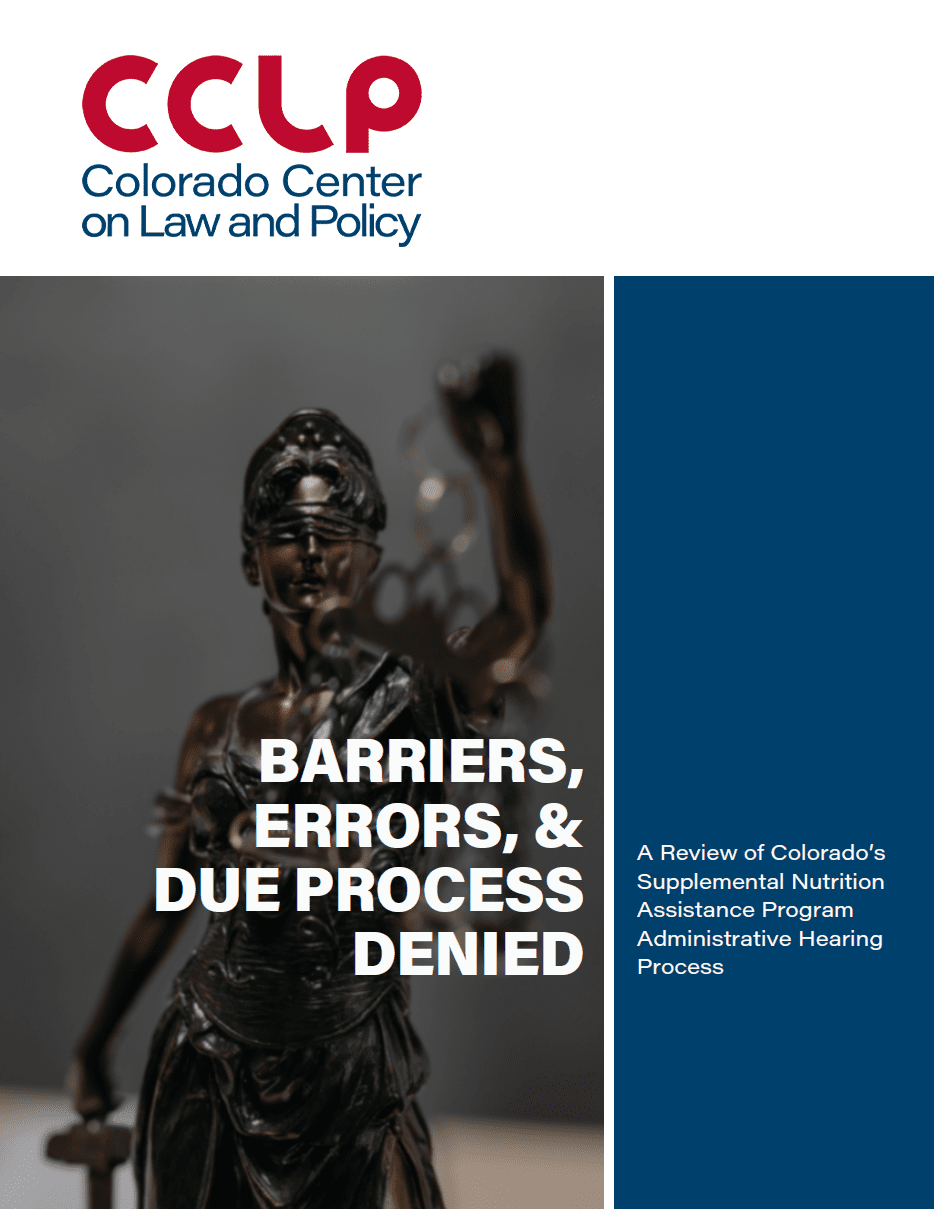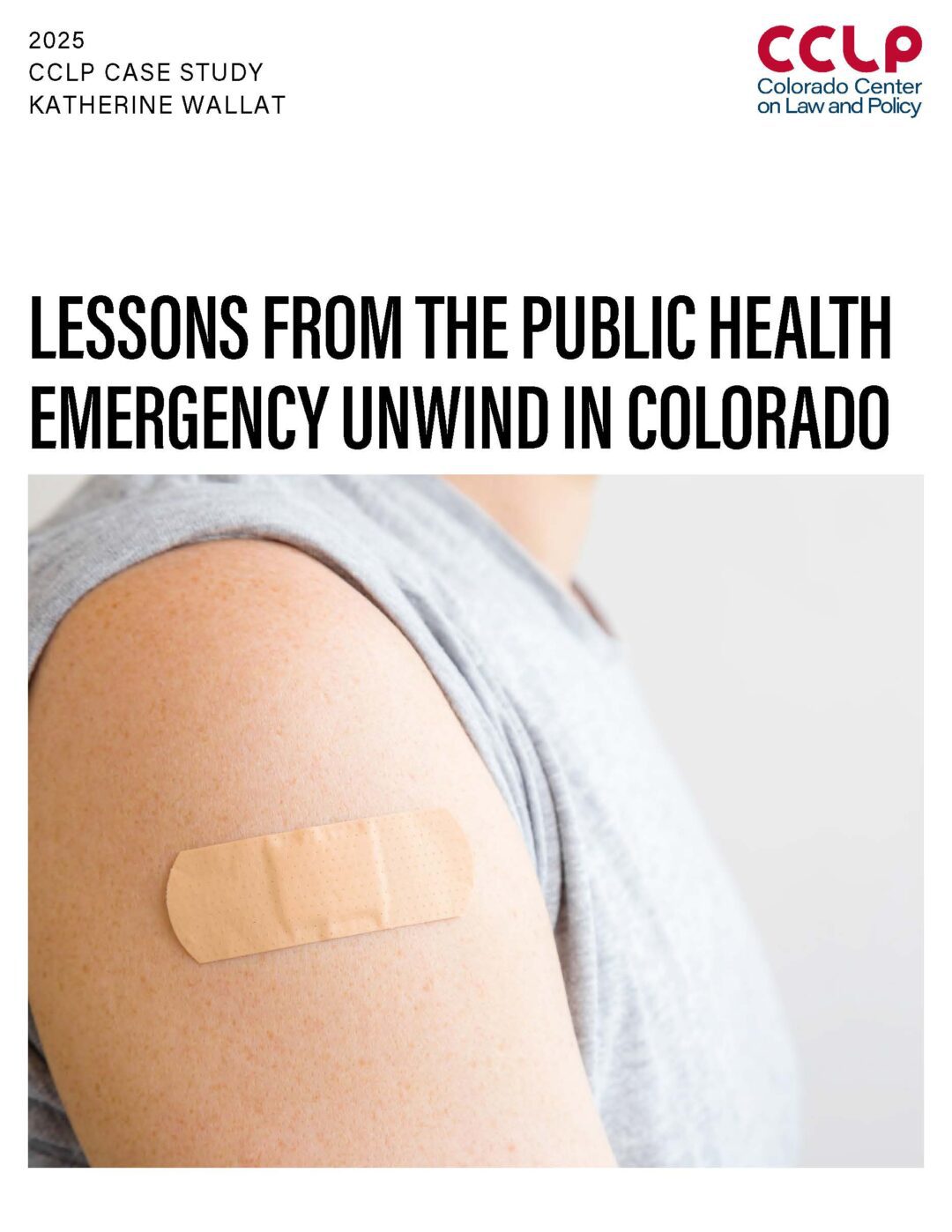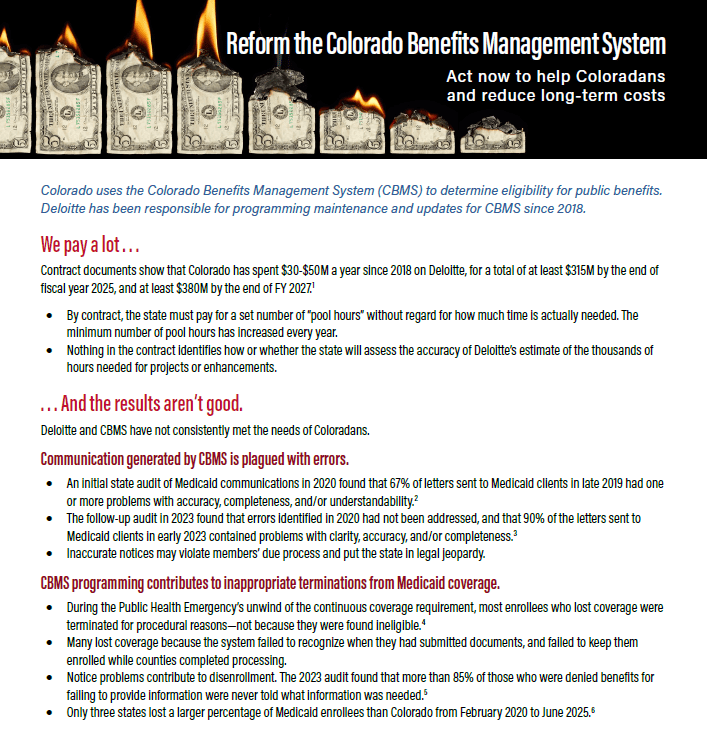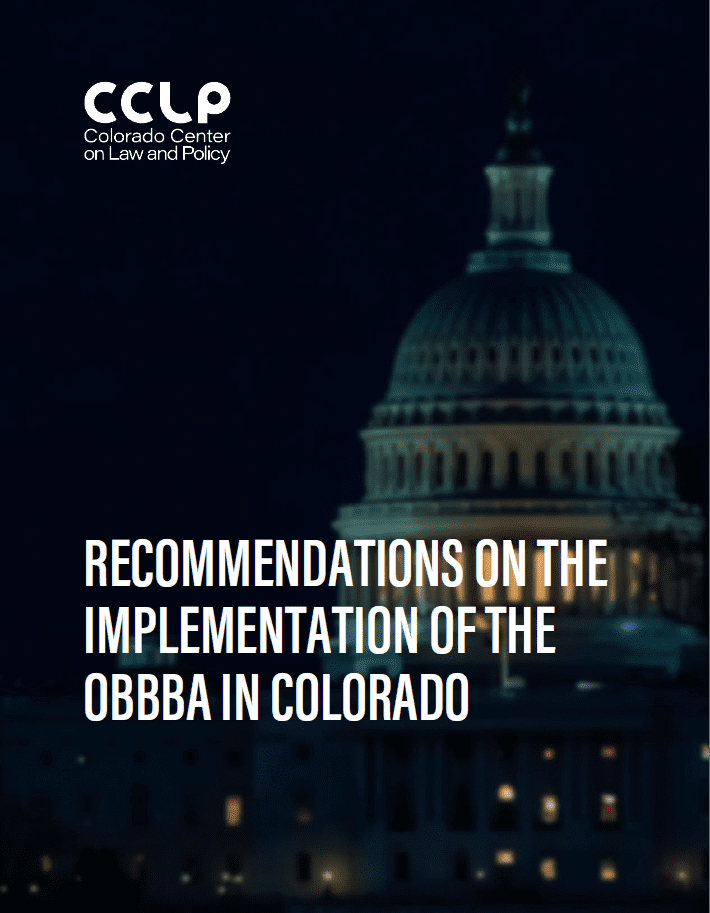From October 2020 to February 2022, Colorado Center on Law and Policy (CCLP) conducted research on SNAP disputes and the processes and outcomes of the administrative hearing process in Colorado. CCLP staff combed through over two thousand pages of 2019 hearing decisions, analyzed state and federal data, and heard directly from Coloradans who experienced challenges with their SNAP benefits and the administrative hearing process firsthand.
CCLP found that many SNAP beneficiaries encounter problems but do not successfully access hearings, and when they do, lose their hearings at rates that are much higher than national averages. Beneficiaries reported difficulty navigating the appeal process, a finding that was unsurprising given the technical and dense information provided to beneficiaries in notices and on websites. Vanishingly few beneficiaries have legal representation, and some who had limited English proficiency appeared without the benefit of trained interpreters.
Many cases heard involved overpayments, some in the thousands or even tens of thousands of dollars. In Colorado, overpayments are much more likely to be caused by county error than by beneficiary error, but overpayments must be repaid even when the beneficiary is not at fault. CCLP also found that counties took months and sometimes years to investigate information, making it more difficult for beneficiaries to defend themselves in court, and sometimes resulting in higher overpayments.
The administrative legal processes, particularly those that involved allegations of fraud, did not appear to give beneficiaries a fair shake. Cases were brought long after the events in question, contributing to a high rate of non-appearance, and proof of the intent to defraud was typically based on minimal evidence.
The Supplemental Nutrition Assistance Program (SNAP) helps low-income households buy food, and for hundreds of thousands of Coloradans, it serves as a lifeline. SNAP has been proven to reduce food insecurity and poverty, improve health outcomes, lower health care costs, and provide a boost to local economies. For SNAP to serve Coloradans effectively, the system for resolving disputes must be accessible and fair.
CCLP recommends adjustments to state policy, changes to the process for hearings, and adoption of revised legal standards. State partners at the Colorado Department of Human Services and the Office of Administrative Courts, as well as the state legislature, have an opportunity to make changes in how counties operate and how administrative hearings are conducted that can ensure better outcomes for individuals.
A system that treats applicants and beneficiaries with greater fairness and respect can improve the outcomes for those individuals and make enrollment in SNAP more appealing to those who might qualify.





CCLP Public Comment to HHS Reinterpretation of Federal Public Benefit
Public Comment, Publications